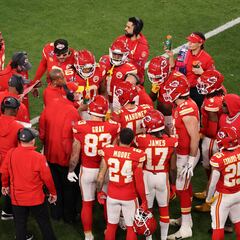Can a NFL player refuse franchise tag?
The NFL’s franchise tag is a powerful tool that allows teams to retain key players for another season. But what happens if a player doesn’t want to play under the tag.


The NFL’s franchise tag is a tool used by teams to retain key players whose contracts have expired. While it provides financial security for players in the short term, it can also restrict their ability to negotiate long-term deals and choose their next destination.
The franchise tag allows NFL teams to retain one impending free agent per year by offering them a one-year contract worth the average of the top five salaries at their respective position or 120% of the player’s previous year’s salary, whichever is higher. While this provides players with a significant salary for the upcoming season, it essentially binds them to their current team unless a trade is negotiated.
Many don't appreciate the power of the Franchise Tag in the NFL.
— Andrew Brandt (@AndrewBrandt) February 20, 2024
No other sports league has this ability: to essentially take a team's top free agent, someone waiting for years to test the market, off the market and limit them to negotiating with 1 team, not 32 teams. Thread..
But can a player refuse the NFL Tag?
Technically, NFL players cannot refuse the franchise tag if it is applied to them by their team. Once the tag is officially tendered, the player is obligated to either sign the tender and play under its terms or hold out in hopes of securing a long-term deal or a trade.
Related stories
In some cases, players who are unhappy with being tagged may choose to hold out of offseason activities, training camp, or even regular-season games in protest. This puts pressure on the team to either negotiate a long-term deal or explore trade options to avoid a prolonged standoff.
Players technically cannot refuse the franchise tag once it is applied to them, they do have options to express their dissatisfaction and attempt to leverage their position to negotiate long-term deals or facilitate trades. The franchise tag remains a contentious issue in NFL contract negotiations, with players and teams often navigating a delicate balance between short-term financial security and long-term career aspirations.


Complete your personal details to comment